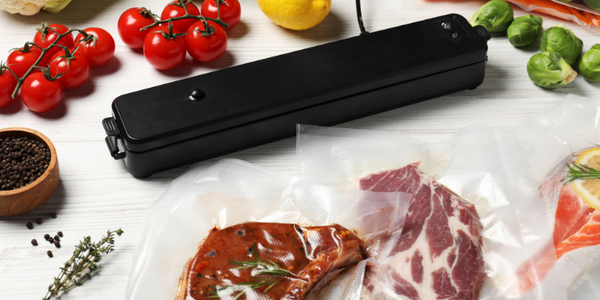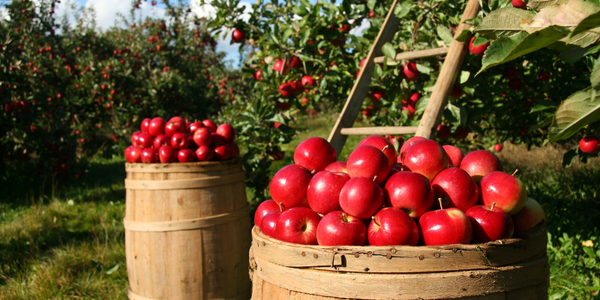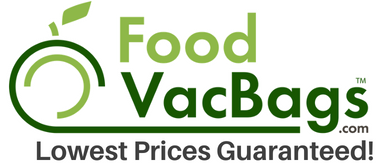Posted on July 19 2019

Have you ever wondered if there are foods you should not be vacuum sealing? There are many foods you can vacuum seal for extended freshness; unfortunately there are a handful that you should not preserve using this method. Some foods contain anaerobic bacteria, which can grow without the presence of air. Within a vacuum sealed pouch, with reduced oxygen, these bacteria will grow and may pose a risk to your health.
Do not vacuum seal:
- raw mushrooms
- garlic
- soft cheeses (blue cheese, brie, camembert, ricotta and other soft and unpasteurized cheeses)
- freshly cooked or steamed vegetables (safe to vacuum seal after they are at room temperature)
In addition, many common vegetables emit a gas when stored. If these vegetables - in the Cruciferae or Brassicaceae family - are kept in a vacuum sealed bag, this gas will cause them to spoil. To store these vegetables properly they should be blanched, dried, then vacuum sealed and frozen for storage.
Blanch first:
- arugula
- bok choy
- broccoli
- brussels sprouts
- cabbage
- cauliflower
- kale
- radishes
- turnips

Related Posts

Troubleshooting Common Vacuum Sealing Issues: Tips for Optimal Performance

10 Kitchen Cleaning Hacks You Need to Try (Because Who Doesn’t Want a Sparkling Kitchen?)




Can you vacuum seal cream cheese?
Hi Jessica,
When properly stored, spinach will maintain the best quality for about 10 to 12 months in the freezer.
Also, here is more helpful information about freezing spinach: https://foodvacbags.com/blogs/foodsaverblogs/freezing-spinach-leaves?pos=1&_sid=afd12899b&ss=r
If you puree let’s say spinach for baby food and freeze it into cubes and now I want to Vaccum seal these frozen cubes, what would be the freezer life?
Hello Daphne,
The way you prep your fruits before freezing will significantly impact how long the food lasts, how difficult it is to thaw and how it will taste later. Be sure to wash or peel your fruits before freezing so they’re ready to go when you want to use them. Larger fruits, such should be sliced into bite-sized pieces for optimal results. Cutting fruits before the freezing process ensures that your foods thaw quickly and retain their texture.
Here is more information about vacuum sealing fruits:
https://foodvacbags.com/blogs/foodsaverblogs/17796593-how-to-prepare-fruits-and-vegetables-for-freezing?pos=1&_sid=8a4b21219&ss=r
Can you vacuum seal mangoes and other fruit? If so how do you do it please.
Hello Angie, you can find information about vacuum sealing potatoes here: https://foodvacbags.com/blogs/foodsaverblogs/can-you-vacuum-seal-potatoes.
I just want to know if I can vacuum seal some whole, raw potatoes that I purchased and will not be able to use until after Thanksgiving. Will vacuum sealing them and storing them in the pantry keep them fresh longer?
Hello Denise, yes, most vegetables need blanching including peas.
Hi! I’m wondering if purple hull peas need to be blanched before sealing?
Yes, you can vacuum seal ginger. When you freeze ginger, don’t bother peeling the ginger first because it’s easier to peel ginger after it’s frozen. Just cut the ginger root into approximately 1 inch pieces. Freeze the pieces in a single layer on a cookie sheet, uncovered for 1-2 hours. Then transfer the pieces to bags then vacuum seal.
What about fresh ginger (root)?